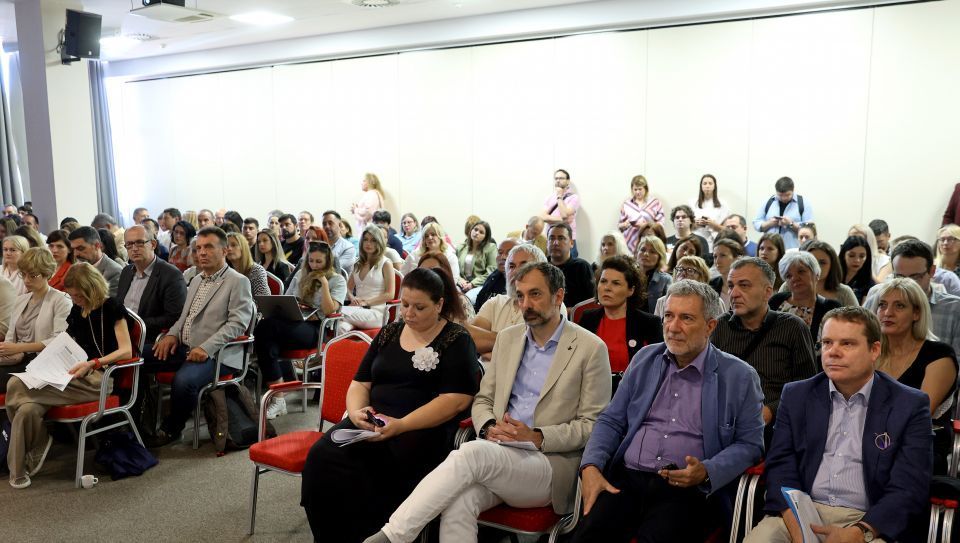Conference "Move.Link.Engage - A step closer to a stronger civil society" held in Niš, brought together more than 150 representatives of the civil sector, the republic and local authorities, as well as business community. The interlocutors assessed that a strong civil society has a significant role in the process of Serbia's accession to the European Union and that it is therefore necessary for as many civil society organizations as possible to be involved in the drafting of legal and strategic documents, as well as in the creation of policies.
These are also some of the main conclusions of the research "Vicious Circles - Practices, Obstacles and Needs of Organizational Development of Civil Society Organizations in Serbia", which was recently conducted by the Belgrade Open School (BOS) as part of the EU Resource Center for Civil Society in Serbia project. According to that research, as many as 67 percent of surveyed organizations are actively involved in the promotion of Serbia's accession to the European Union, despite numerous challenges in their daily business. However, in order for their contribution to European integration to be even more visible, it is necessary for organizations to be part of the decision-making process at all levels of management, from local to national.
Speaking about the importance of empowering civil society for community development within the framework of EU accession, the Minister for Human and Minority Rights and Social Dialogue Tomislav Žigmanov pointed out that the ministry he heads is dedicated to creating a stimulating environment for the development of civil society, and that the partnership between the state and civil sector is one of the key criteria for EU membership.
"The Ministry of Human and Minority Rights and Social Dialogue continuously implements numerous activities to encourage the partnership of the public and civil sectors. We are working intensively both on implementing the activities foreseen in the action plan and defining new ones, as well as on strengthening various institutional cooperation mechanisms. We opened the doors of the ministry for various initiatives of the civil sector and for permanent dialogue, which is base for all other activities," he said.
Nikola Bertolini, head of the Cooperation Department of the Delegation of the European Union in Serbia, pointed out that the voice of citizens gathered in civil society organizations should be heard more strongly at all levels of government and that this is one of the main goals of the aforementioned project coordinated by the BOS.
"We will play the role of donor and partner to civil society only until Serbia enters the EU, which, we hope, will be in a few years. What is important is to strengthen the capacity of the civil sector before membership, because then new perspectives and new funds open up for you, and you have to be ready to use them," Bertolini said.
The research that was discussed at the conference shows that finances, along with human resources management, are the weakest point of the work of organizations in Serbia. As many as 57 percent of organizations rely on grants from local self-government units, and only 17 percent of them have long-term funds that provide security for further organizational and program development.
